The best paint thinner makes paint easier to apply, cleans brushes and rollers, wipes up spills and splatters and degreases surfaces.
Our editors and experts handpick every product we feature. We may earn a commission from your purchases.Learn more.
The best paint thinner makes paint easier to apply, cleans brushes and rollers, wipes up spills and splatters and degreases surfaces.
Our editors and experts handpick every product we feature. We may earn a commission from your purchases.Learn more.
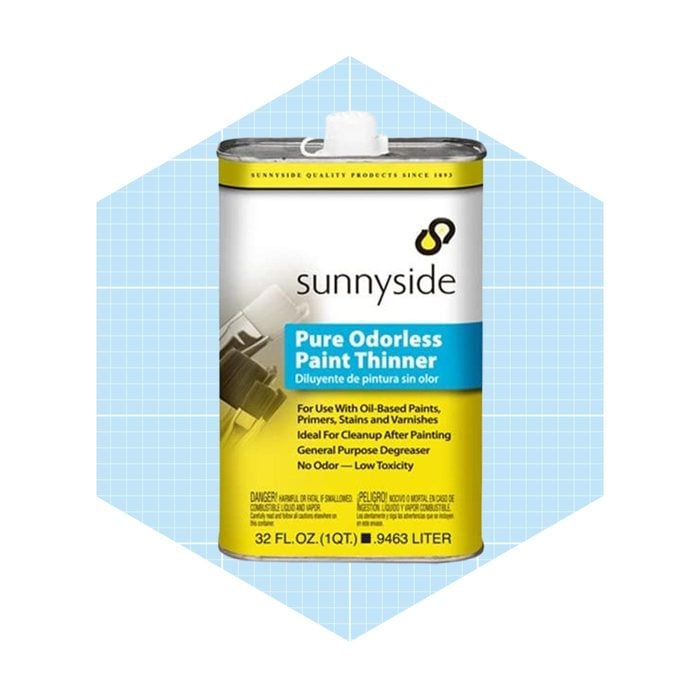
Get the results you want with a quality paint thinner without the strong odor. This Sunnyside solvent lets you work on projects indoors without worrying about fumes or air quality. It thins paint, varnishes and stains. This odorless pick is especially fantastic at cleaning up gooey messes left behind from painting projects.
Pros
Cons
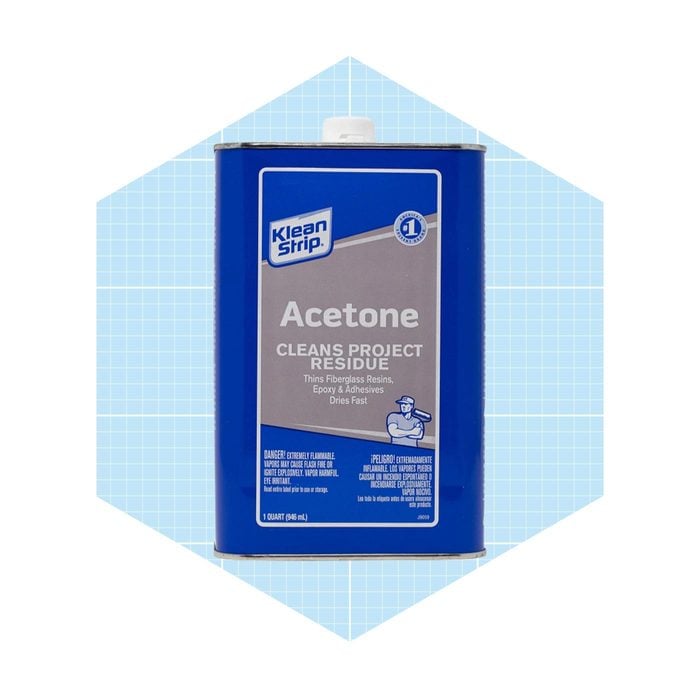
Klean Strip Acetone is both a paint thinner and remover. This alcohol-based solvent is specially formulated to thin or clean polyester resins (think wood filings and outdoor furniture), epoxies (primers and sealers) and adhesives (glue). This is a terrific option for removing marker, ink, sticky residue or erase scuffs from walls. It’s also helpful when you need to un-superglue fingers. Plus, it evaporates quickly and leaves no residue.
Pros
Cons
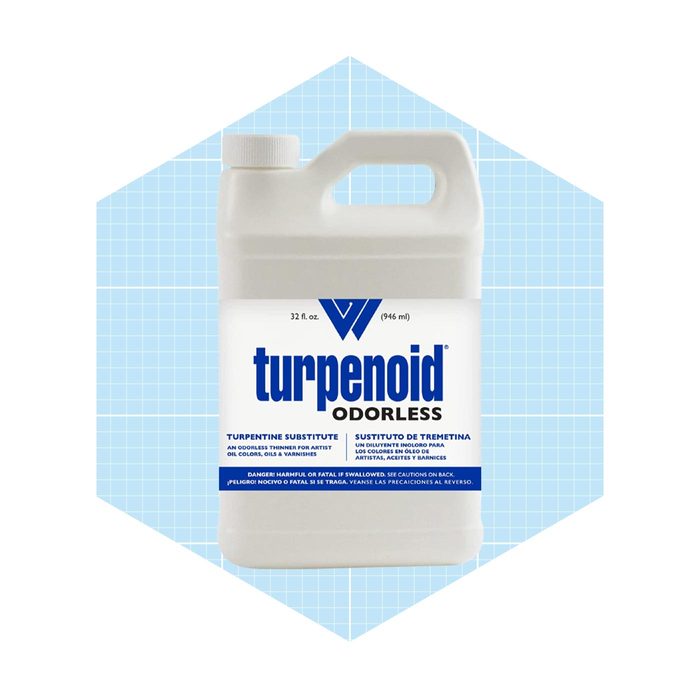
For those searching for an odorless paint thinner, check out Weber Turpenoid. It has the same properties and drying time of traditional turpentine, but without the strong odor. The solution is compatible with all oil-based artist mediums, but it won’t affect their true color.
Buyers note it’s an exceptional paint brush and tool cleaner—sans any toxic fumes. “This product is fantastic for cleaning oil brushes, there is no smell left behind and it works like a charm, so quickly! A little goes a very long way,” writes verified Amazon purchaser Shanaenae.
Pros
Cons
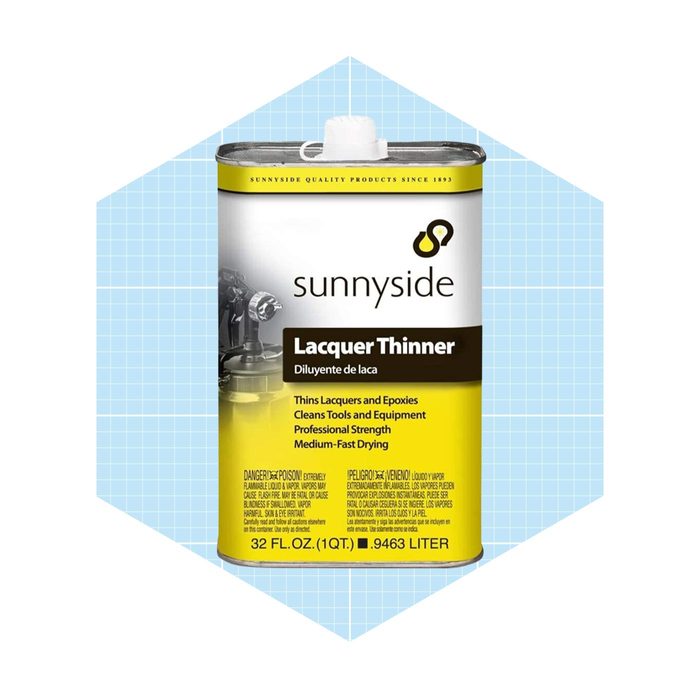
To dissolve and thin lacquers and shellacs, this Sunnyside Lacquer and Epoxy solvent is a highly-rated option among Amazon customers. Not only is it part thinner and part degreaser, but it also works to clean paint brushes, auto parts, machine components and other mucky messes. It can be run through a paint sprayer or airbrush to effectively clean the machine after use, making it a must-have to keep around your garage or workshop.
Pros
Cons
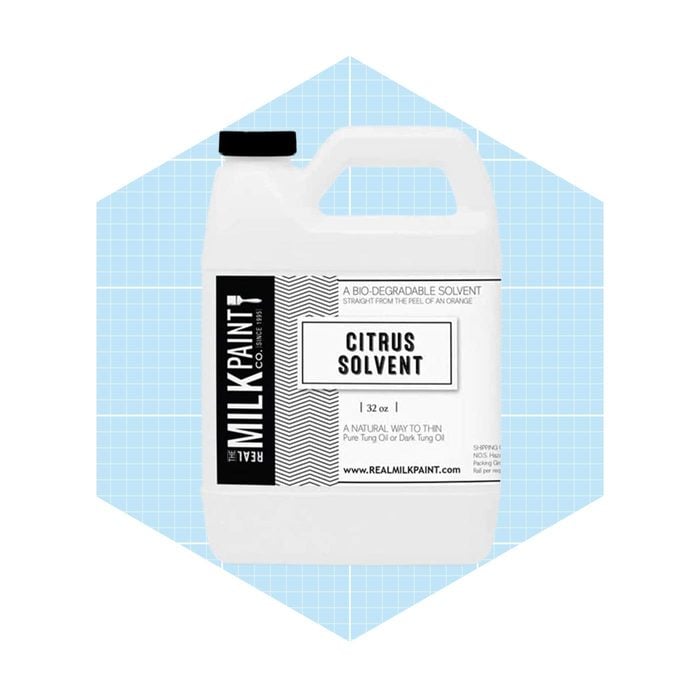
If you want to avoid toxic fumes and want a greener alternative, Real Milk Paint Citrus Solvent is made of 98% pure citrus peel oil extract (the other 2% is water). Use this natural solvent anywhere paint thinners or mineral spirits are required. It has a crystal-clear formula, and leaves any woodworking project with a rich, natural finish.
Pros
Cons
When buying a paint thinner, consider how you plan to use it, as some are better for thinning certain types of paints. Some are preferred for removing residue or scuff marks, and others are more suitable for cleaning tools. Some are odorless, while others may leave behind a strong smell. Finally, think about the quantity you’ll need for the project and how much you’re willing to spend.
As shopping experts, our only job is to help you find a winning product. We start with the research and reporting basics—what products are made of, what they look like and how much they cost—to ensure that we’re only recommending the buys that are worth your time and money. Then, we research the features that speak to the product’s quality, taking advice from industry insiders and subject matter experts on what makes a product a smart value (or worthy of a splurge). Finally, we do the work of combing through user reviews to see how real people interact with the product, and if it stands up to the test.
Paint thinners are solvents used to dissolve oil-based paints, primers and stains; thereby reducing their viscosity (thickness). Here’s what else it can do:
Paint thinners are not safe for use with latex paints and finishes, but are compatible with most water-based paints. As with any solvent, be sure to read labels carefully for proper use.
To dispose of paint thinner, check with your local government. Many cities and counties have specific instructions for how to get rid of your paint thinner, including drop off locations and hazardous waste collection events. Never pour it down the drain, on the ground or in the trash.
Solvents are extremely flammable—they’re considered household hazardous waste—so disposing of rags and left-over thinner properly is paramount. Never ball up wet rags and toss them into a container as they can spontaneously combust. Instead, rinse rags out with water and let them dry completely before throwing away. Always keep paint thinners in a cool, dry, well-ventilated area away from heat, ignition sources and, of course, pets and children.